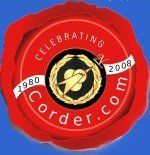

Corder Enterprises International
|
|
| The Green Datacenter |
E-Mail This Page
To a Friend.



VCP & VCIs
CL020 - Advanced Linux and UNIX Programming
Course Description: In-depth training for software developers on Linux and UNIX system programming facilities. Learn how to develop sophisticated multiprocess applications using system calls and library routines.Audience: Application developers who will be writing advanced programs on Linux and UNIX.
Prerequisites: Fundamentals of UNIX or Fundamentals of Linux, C Programming, and Advanced C Programming. Strong C programming skills are required for this course.
Course Contents
UNIX Standards
Brief History of UNIX AT&T and Berkeley UNIX Systems Major Vendors What is a Standard? What is POSIX? Other Industry Specs and Standards Files and Directories
The POSIX.1 Basic File Types File Descriptions Keeping Track of Open Files File Table Entries The v-node Structure The fcntl Function File Attributes The access Function Link, unlink, remove, and rename Functions Functions to Manipulate Directories System I/O
Standard I/O vs System I/O System I/O Calls File and Record Locking Processes
What is a Process? Process Creation and Termination Process Memory Layout Dynamic Memory Allocation Accessing Environment Variables Real and Effective User IDs Process Management
Programs versus Processes The fork() System Function Parent and Child The exec System Function Current Image and New Image The wait() and waitpid() Function Interpreter Files and exec Pipes - Basic IPC
Interprocess Communication FIFOs More on FIFO's Signals
What is a Signal? Types of Signals Signal Action Blocking Signals from Delivery The sigaction() Function Signal Sets and Operations Sending a Signal to Another Process Blocking Signals with sigprocmask() Scheduling and Waiting for Signals Restarting System Calls (SVR4) Signals and Reentrancy Overview of Client/Server Programming
Designing Distributed Application Clients and Servers Ports and Services Server Types Stateless vs. Stateful Servers Concurrency Issues The Berkeley Sockets API
Berkeley Sockets Data Structures of the Sockets API Socket System Calls Generic Client/Server Models Sample Socket-based Client Algorithms and Issues in Client Design
Algorithms Instead of Details Client Architecture Sockets Utility Functions TCP Client Algorithm
TCP Client Implementation UDP Client Algorithm UDP Client Implementation Server Design
Iterative Servers Concurrent Servers Performance Consideration An Iterative Server Design A Concurrent Server Design System V Interprocess Communication
System V IPC The Three System V IPC Facilities Common Operation - Get (IPCget) Common Operation - Control (IPCctl) Calls to Operate on the Facilities Commonalities between msg, sem, and shm IPC via Message Queues IPC via Shared Memory Segments Coordinating the Use of Shared Memory Semaphore Sets-semget() and semctl() Calls Semaphore Sets - the semop() calls Shared Memory Coordination Using Semaphores IPC Facility Handling ipcs and ipcrm Date and Time Functions
Time Representations Decoding Calendar Time Shorthand Functions - asctime(), ctime() Formatting Calendar Time Shared Process Times The Difference Between clock() and times() Berkeley High resolution Timers Standard I/O
I/O Calls to manipulate streams I/O Calls which perform character I/O I/O Calls which perform string I/O I/O Calls which perform formatted I/O I/O Calls which perform binary I/O

Course
Flyer

C.E.I.
Flyer
Course
Offering
3mbAIX | HPUX | Linux | Solaris
General UNIX | Web | PerlCopywrite 1980 - 2015

